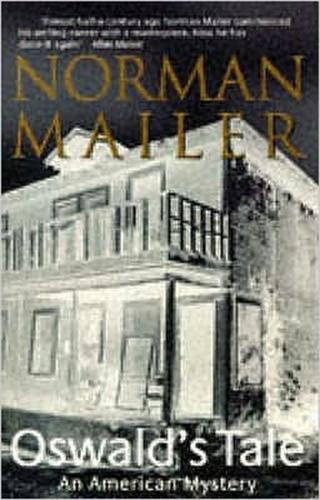
Oswald's Tale: An American Mystery
(Paperback)
Publishing Details
Oswald's Tale: An American Mystery
By (Author) Norman Mailer
Little, Brown Book Group
Abacus
3rd October 1996
United Kingdom
Classifications
General
Non Fiction
364.1524092
Physical Properties
Paperback
848
Width 126mm, Height 202mm, Spine 50mm
920g
Description
In 1959 Lee Harvey Oswald defected to the Soviet Union and was sent to Minsk, where he was kept under constant KGB surveillance on the suspicion that he might be a CIA agent. In 1993 Norman Mailer spent six months in Minsk retracing Oswald's former friends and sweethearts. He obtained exclusive interviews with KGB officers and exclusive access to KGB surveillance reports. Mailer also provides an account of Oswald's disastrous childhood and of the events leading from his return to the US to his death in Dallas.
Reviews
'An epic tale' SUNDAY TELEGRAPH 'Fascinating' DAILY TELEGRAPH 'Anyone with curiosity will find a reason to read Origins Reconsidered: it is a superb account of the state of knowledge concerning the evolution of our species . . .Richard Leakey sees the wood and not just the trees' NEW SCIENTIST 'The most powerfully mysterious book to have emerged from America for many years.' THE TIMES 'The point of this book, though, is not who did it, but how Mailer has done it... sage and kingly, elegant and energetic, and perfectly getting the number of OLH-2938.' GUARDIAN 'OSWALD'S TALE is terrific: bristling with vitality and intelligence and wit, and organised with an inventive cunning that makes the reading utterly compelling.' DAILY TELEGRAPH 'The meat of the book is the remarkable feat of imaginative sympathy which enables Mailer to engage with Oswald...' INDEPENDENT '... an insight that made the usual conspiracy theories look like so much cerebral Meccano.' Hugo Barnacle, BOOKS OF THE YEAR '... an extraordinary faction, a huge, sprawline, deeply intelligent epic that takes us nearer to the heart of the mystery surrounding the Kennedy assassination.' OBSERVER '... it is the performance of an author relishing the force and reach of his own acuity.' THE SUNDAY TIMES '... his best piece of non-fiction since the first half of THE EXECUTIONER'S SONG.' Martin Amis, BOOKS OF THE YEAR 'Mailer's profound understanding of his country and its people generally... lifts the story of Lee Harvey Oswalk clear of the conspiracy crap mills and places it finally into American literature alongside William Manchester's classic DEATH OF A PRESIDENT.' EVENING STANDARD
Author Bio
After graduating from Harvard Norman Mailer served in the South Pacific during World War II. He published his first book in 1948 and won the Pulitzer Price twice for THE ARMIES OF THE NIGHT and THE EXECUTIONER'S SONG.
